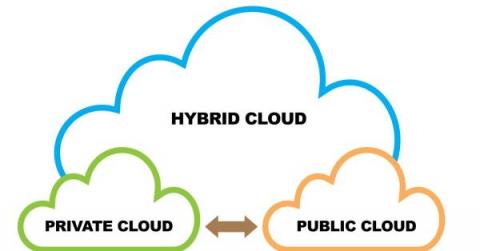Systems | Development | Analytics | API | Testing
Cloud
A Primer on Cloud Architecture
The cloud is growing more and more popular each day. We are in an era where there is a prominent trend of companies migrating from traditional on-premise systems to more reliable and fast cloud-based systems. However, the conversion is still not rampant on a large scale, primarily due to the lack of awareness in the up-and-coming businesses about the cloud’s fundamentals. However, the cloud has proven to be a sound and worthy option time and time again.
Business Intelligence on the Cloud Data Platform: Approaches to Schemas
Insights from Deloitte: Streamline Cloud-to-Cloud Appian Migrations
Cloud-to-cloud migration can be an expensive, cumbersome, and overwhelming process with no guarantee of success. Yet, moving data from cloud to cloud is becoming more and more common in the public sector as operations are being migrated to the cloud more completely. Factors like complexities in environments, sheer volume of historical data, and application nuances can greatly impact the success or failure of a cloud migration effort.
Integrate.io Achieves Google Cloud Ready - BigQuery Designation!
Hybrid Data Delivery (Data Services) - "Cloud Data Sources" - Complete Walk-through
What Is AWS? Modern Technology Fueling Digital Transformation
What's New in Amazon EMR Unveiled at DataOps Unleashed 2022
At the DataOps Unleashed 2022 virtual conference, AWS Principal Solutions Architect Angelo Carvalho presented How AWS & Unravel help customers modernize their Big Data workloads with Amazon EMR. The full session recording is available on demand, but here are some of the highlights.
Little Fluffy Hybrid Clouds
In this series of demystifying the tech trends, my colleagues and I will be looking at busting the buzzwords to help you keep on track. Concerned about puzzling parlance, analytics argot, techie terminology – or plain old jargon? This series breaks down words and concepts to give you the deepest insight and understanding into how to talk the talk in the world of tech, so you can engage in conversations with the confidence of being data literate.
Ably migrates to Graviton2
Ably provides an edge messaging service to deliver data at low latency and power live and collaborative applications on millions of simultaneously connected devices. Our platform runs tens of millions of concurrent, long-running WebSocket and HTTP streaming connections and reaches more than 300 million devices across 80 countries each month. Ably is on track to power realtime digital experiences for one billion devices per month by 2024.











